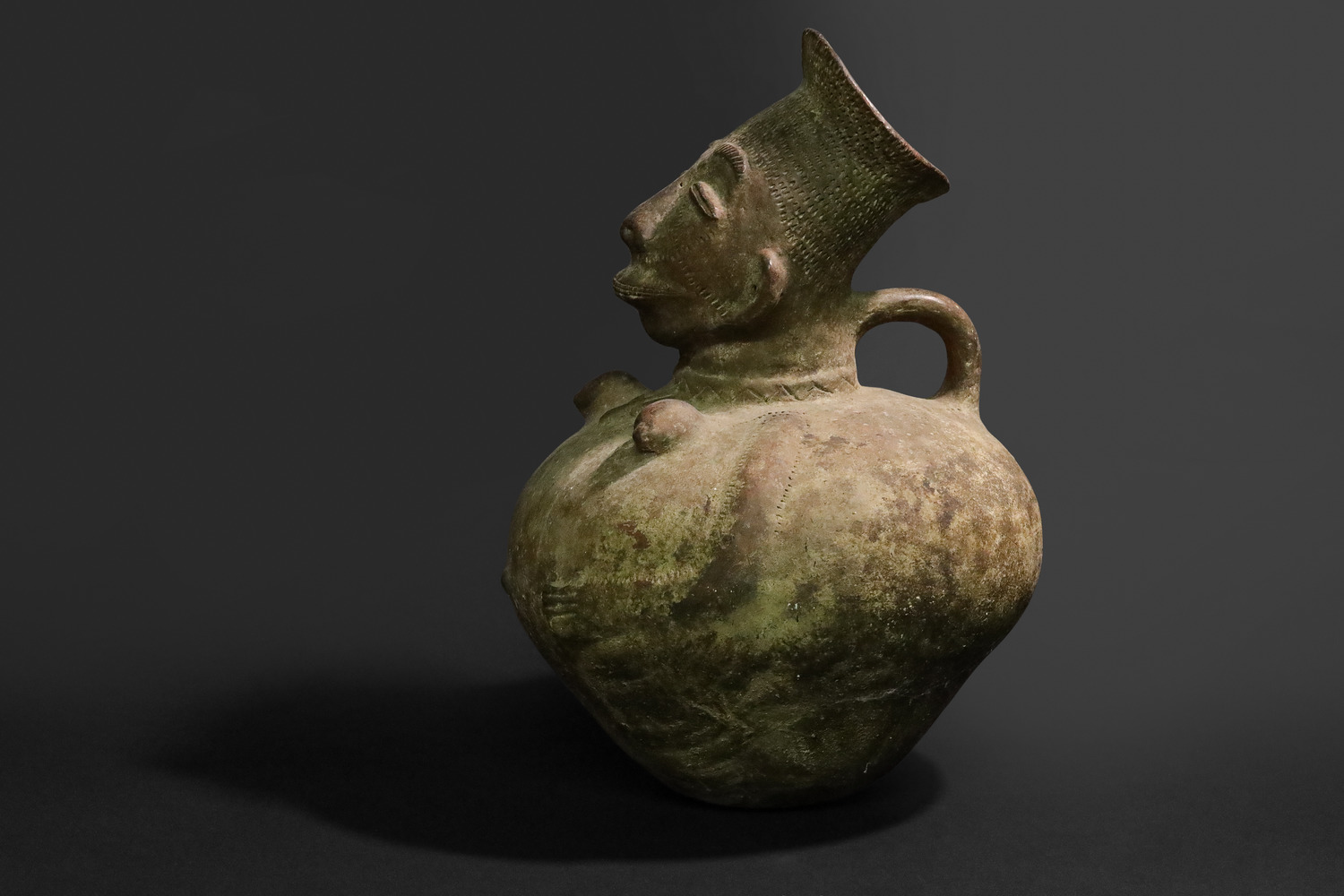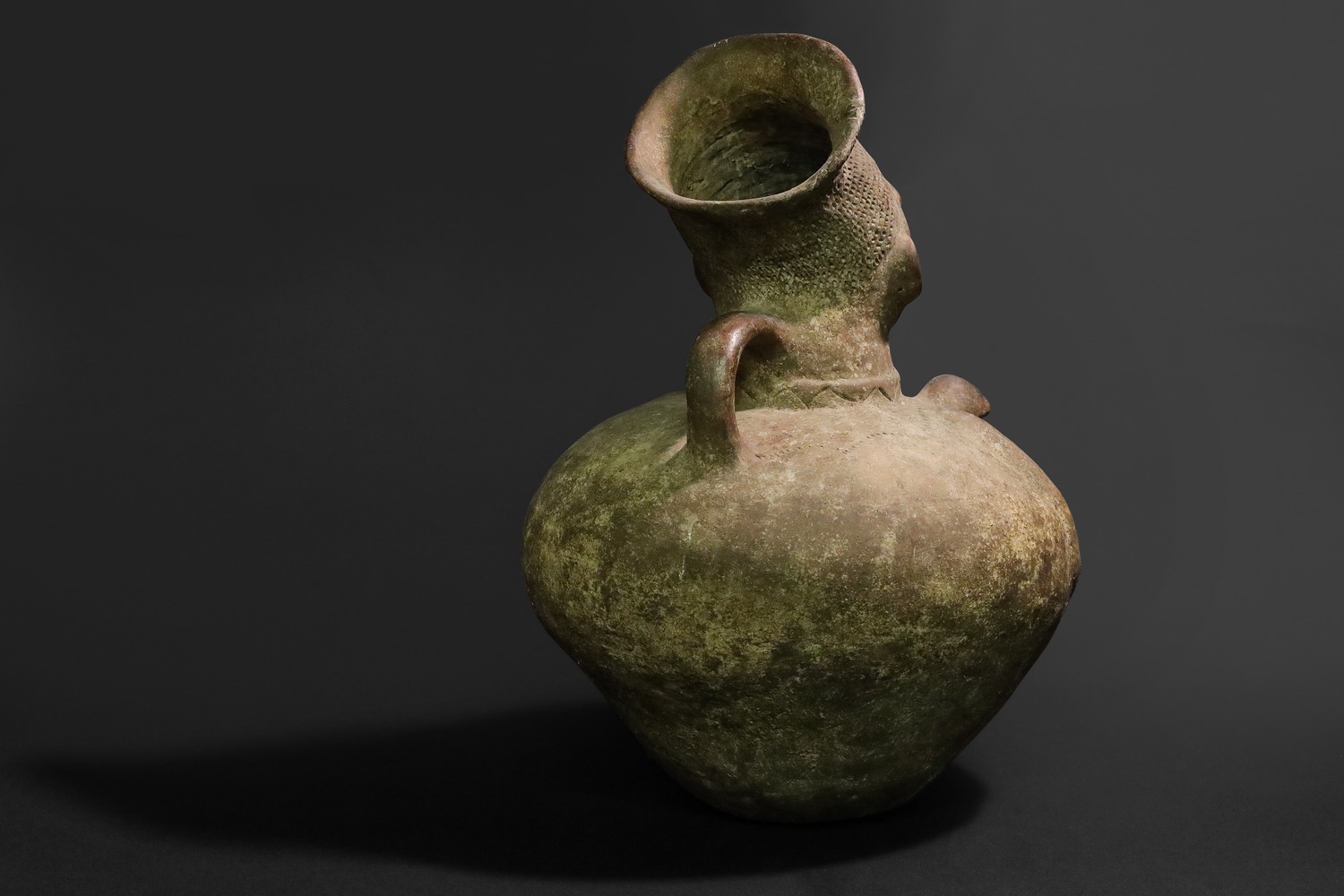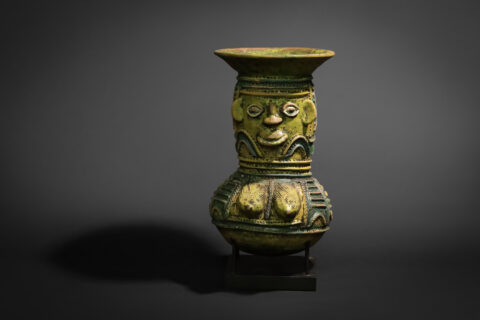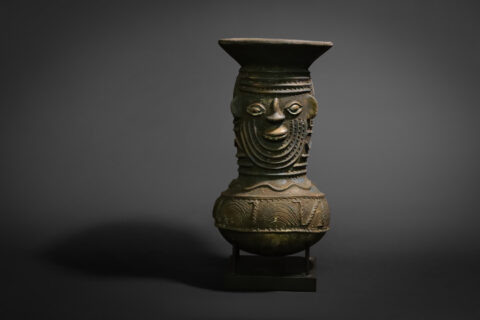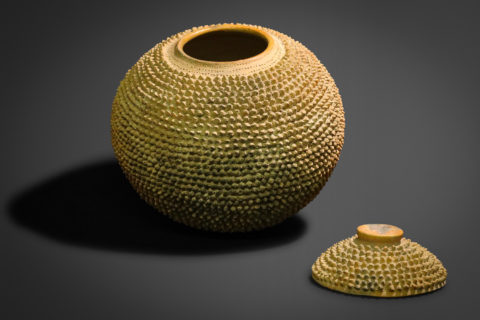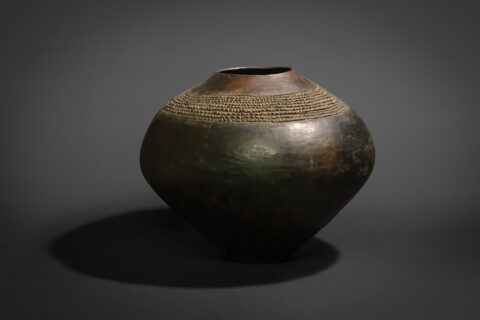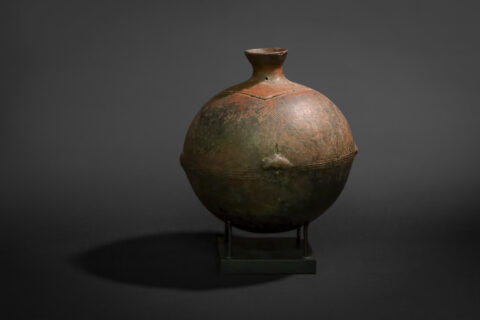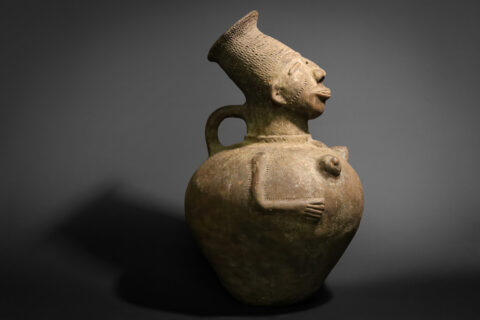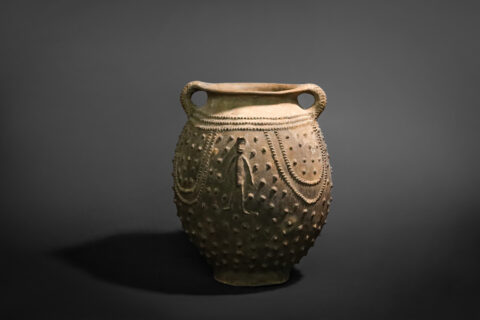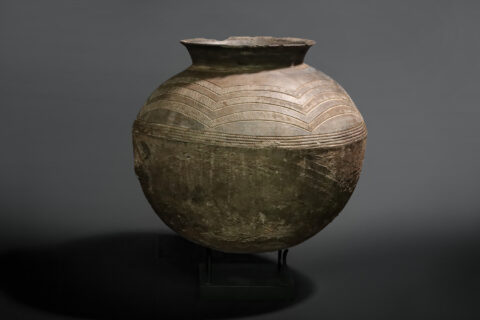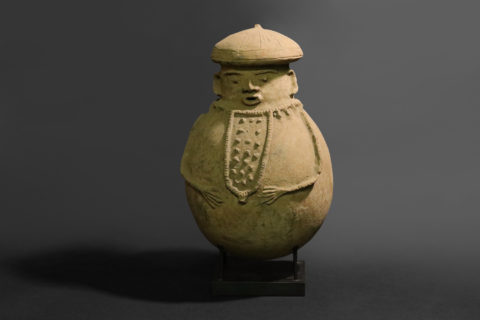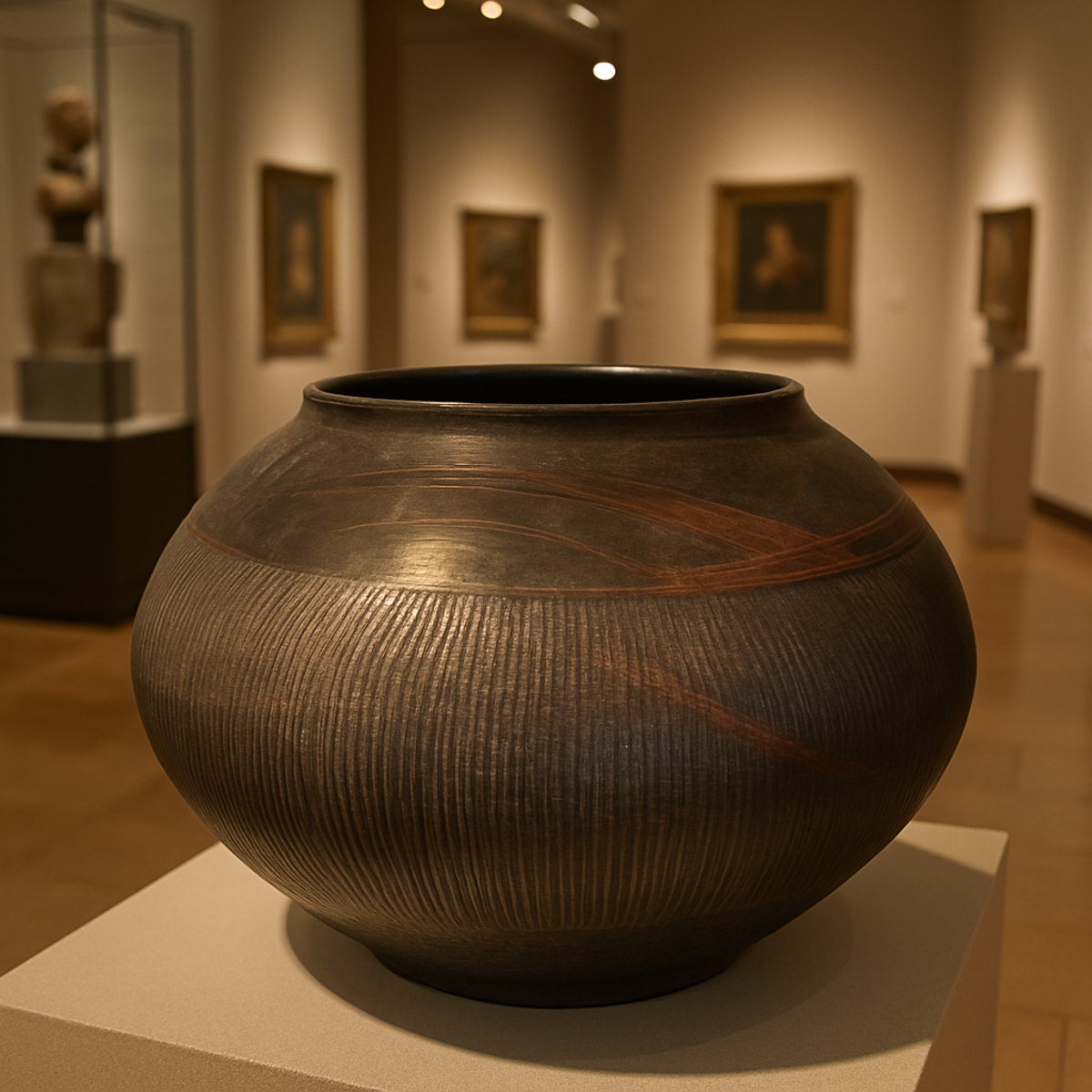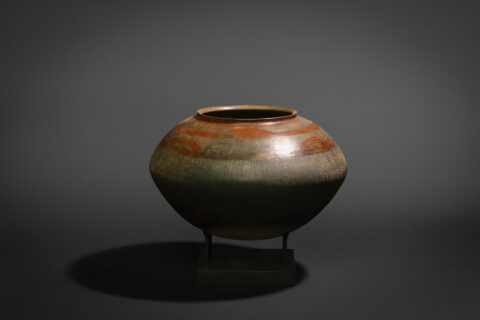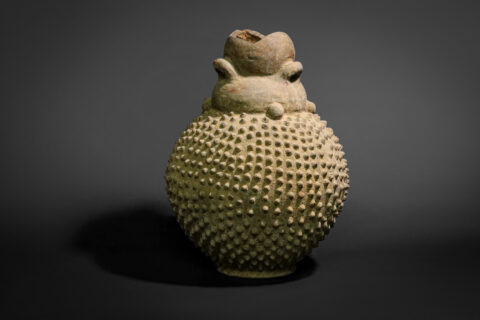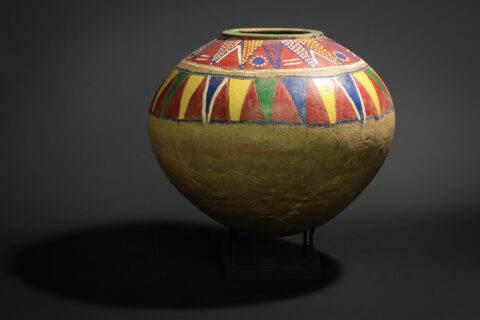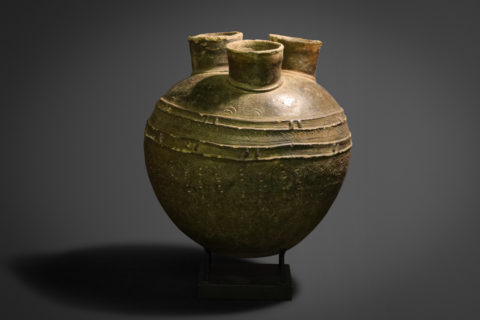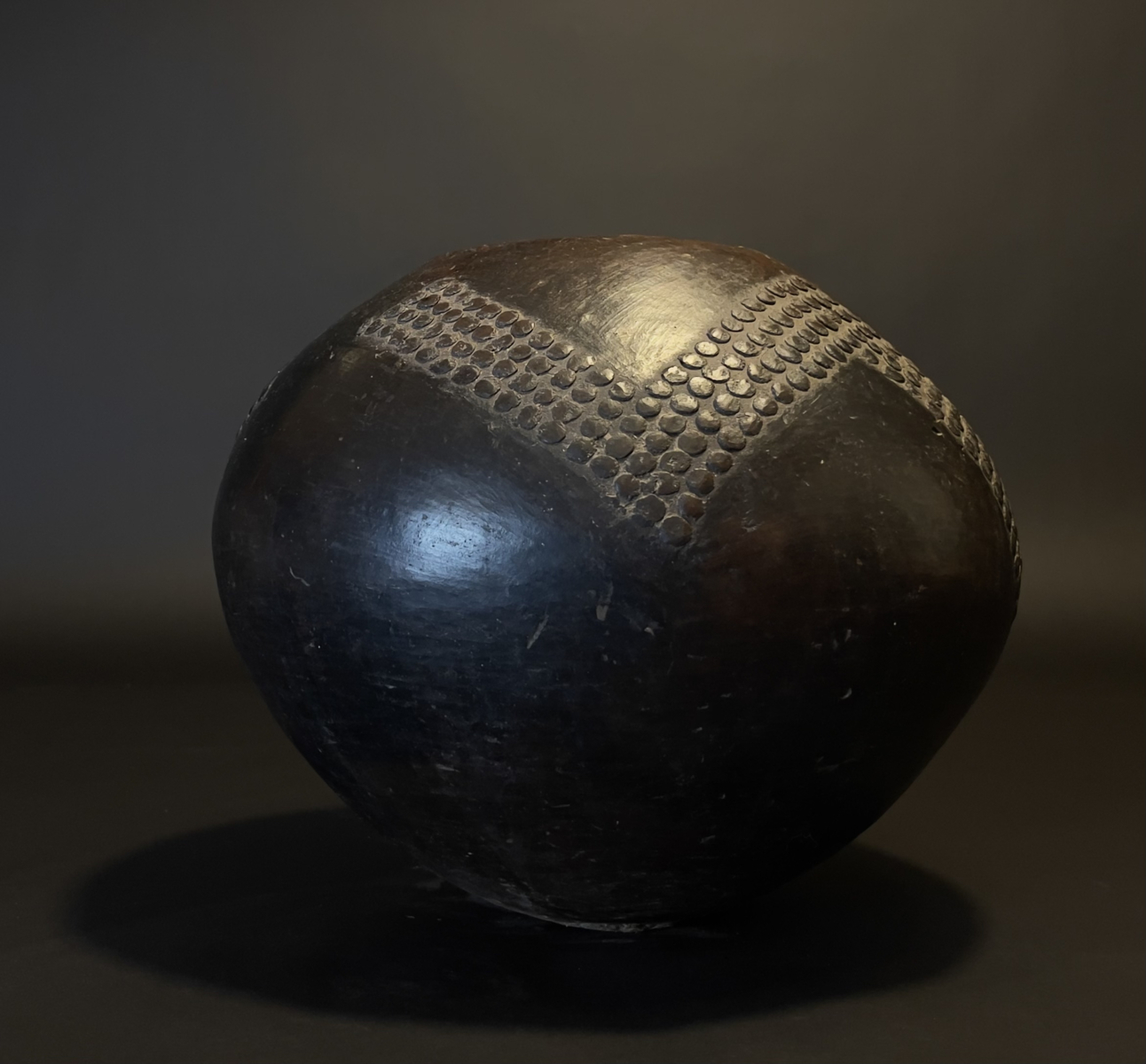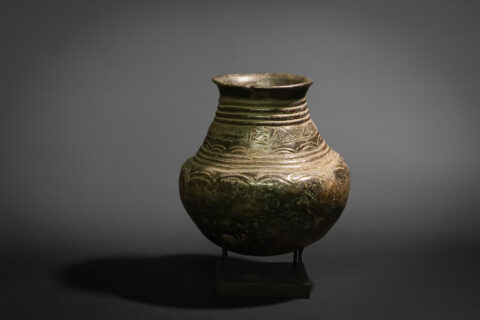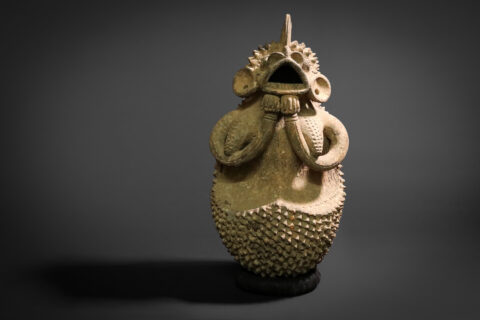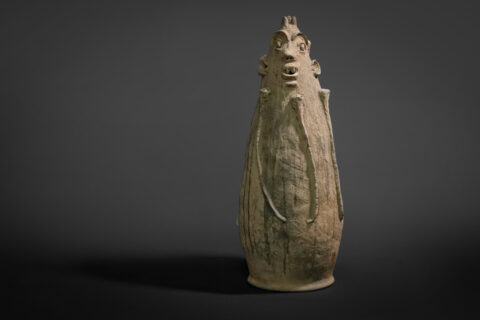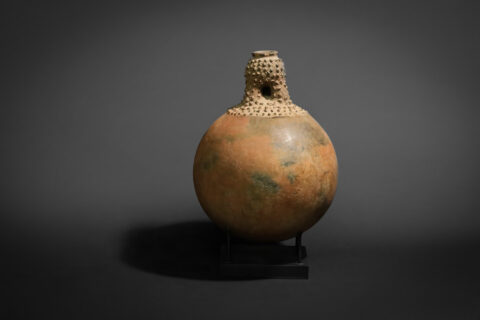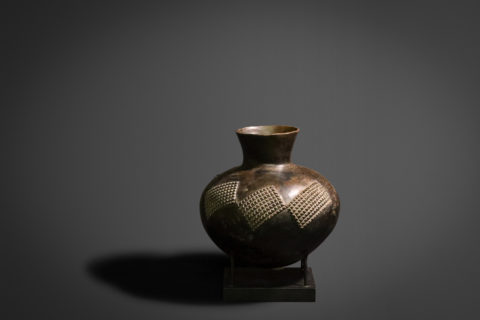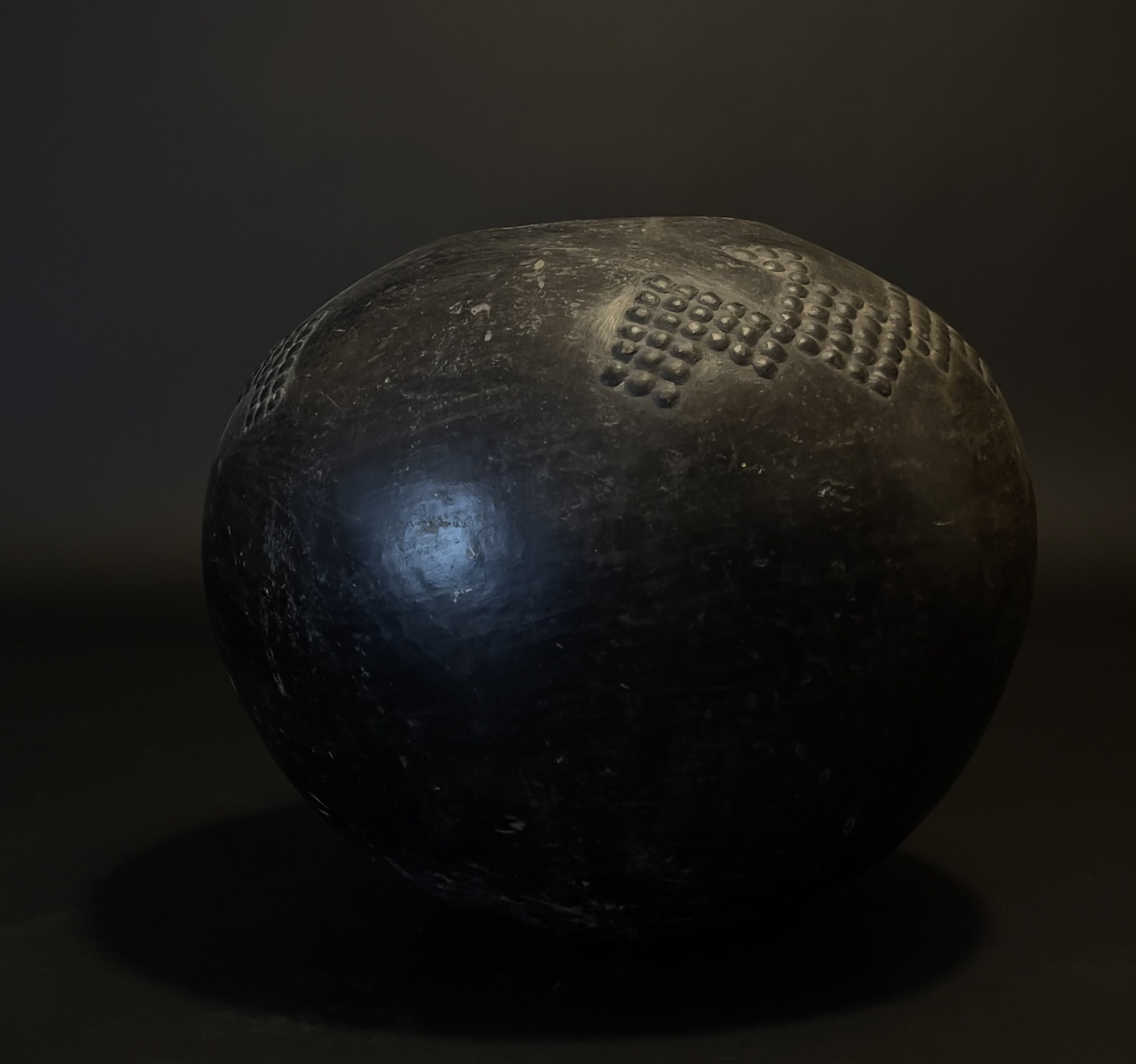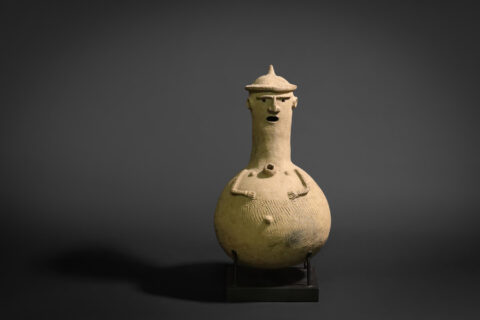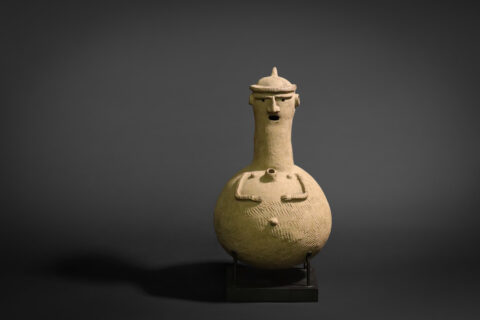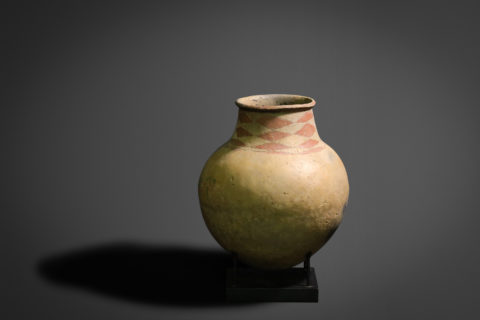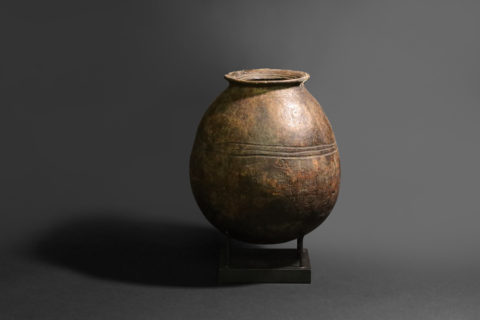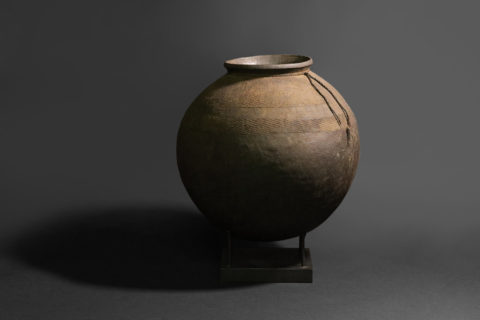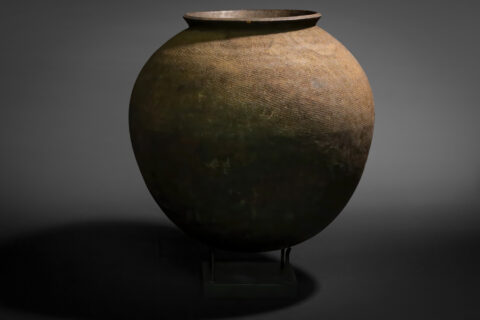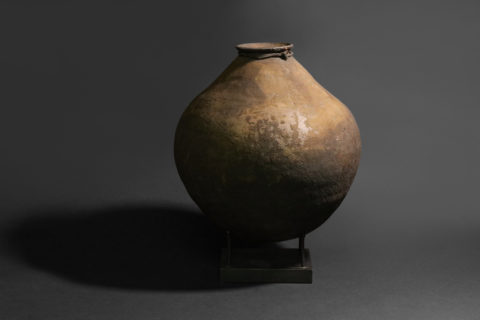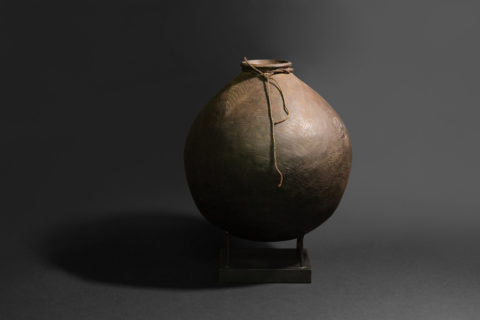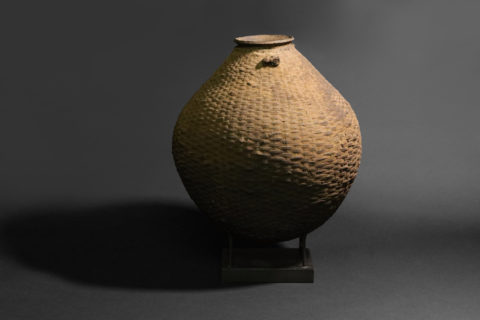Description
The Mangbetu are a farming people living in northeastern, Republic of Congo. They are perhaps physically distinguishable for their elongated skulls – achieved through a process known as Lipombo (cloth-wrapping the baby’s head from birth until age two), and, by cultural tradition, is utilized to denote future power and higher intelligence for the baby. Generally, and as with the practice of most traditional cultures of the world, African women serve a subordinate role in creative endeavors regarding the visual arts. These objects are exceptional in that they are designed and constructed by Mangbetu women. Indeed, pottery making (along with musical dance and song) is one of the few examples of African, expressive culture that females may participate. This terra-cotta, anthropomorphic vessel is employed for consumption of local wine and medications during various, cultural enactments.
REFERENCES:
Schildkrout, E. 1999. “Gender and Sexuality in Mangbetu Art.” In Unpacking Culture: Art and Commodity in Colonial and Postcolonial Worlds. Ed. by Ruth B. Phillips and Christopher B. Steiner. Berkeley: University of California Press.


